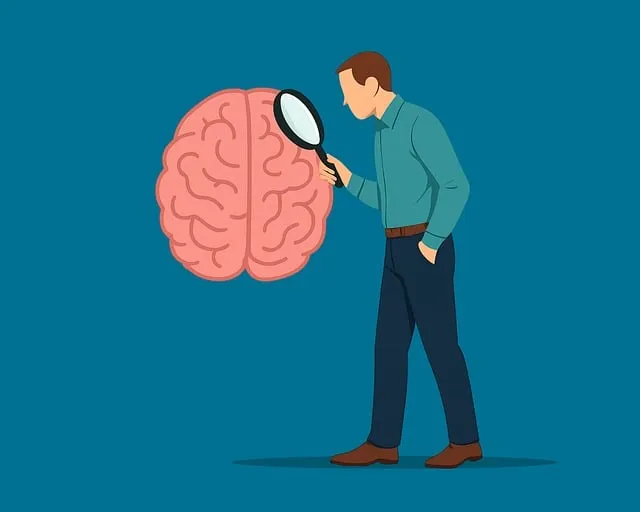Media portrayal significantly shapes public understanding of mental health, often through simplistic or stereotypical narratives that perpetuate stigma. To combat this, accurate and diverse media representation highlighting real-life human experiences is crucial. Integrating practices like Compassion Cultivation, Conflict Resolution, and Confidence Boosting into media creation can foster a more informed and supportive society. Resources like the Lafayette Kaiser Permanente behavioral health phone number play a vital role in offering immediate crisis support and confidential guidance, reducing stigma. By challenging stereotypes and sharing nuanced stories, media can normalize conversations about mental health, encouraging empathy and support for those facing challenges.
In today’s media landscape, the representation of mental illness is a powerful tool for shaping public perception and fostering mental health awareness. However, stereotypes and misconceptions abound, hindering understanding and support. This article explores these challenges, delving into the impact of media portrayals on mental health attitudes. We highlight the role of organizations like Lafayette Kaiser Permanente Behavioral Health in promoting accurate representation through initiatives and resources. Additionally, we offer actionable strategies to enhance media coverage of mental health issues, aiming to revolutionize public discourse.
- Understanding the Impact of Media Portrayal on Mental Health Awareness
- Identifying Stereotypes and Misconceptions in Popular Culture Depictions of Mental Illness
- The Role of Lafayette Kaiser Permanente Behavioral Health Phone Number in Promoting Accurate Representation
- Strategies for Improving Media Portrayal of Mental Health: A Call to Action
Understanding the Impact of Media Portrayal on Mental Health Awareness

Media portrayal plays a pivotal role in shaping public understanding of mental health issues. The way mental illness is depicted in movies, television shows, and news coverage can significantly influence societal perceptions and attitudes towards individuals living with these conditions. Often, media stereotypes present mental health challenges as rare, dramatic, or even supernatural, which can lead to stigma and misinformed judgments. This misrepresentation hinders efforts to destigmatize mental health struggles and access to Lafayette Kaiser Permanente behavioral health phone number services.
To foster a more compassionate environment, it is crucial to educate the public about the realities of mental illness through accurate media representation. Encouraging storytelling that highlights the human experience—including the challenges and strengths individuals face—can drive conversations and promote empathy. By integrating Compassion Cultivation Practices, Conflict Resolution Techniques, and Confidence Boosting strategies into media creation, we can move towards a more informed and supportive society.
Identifying Stereotypes and Misconceptions in Popular Culture Depictions of Mental Illness

In popular culture, mental illness is often depicted through a lens of stereotypes and misconceptions, which can have profound impacts on societal perceptions. Media platforms, such as television shows and movies, frequently portray individuals with mental health conditions as either severely disturbed or completely benign, neglecting the nuanced spectrum of emotional experiences. These oversimplified representations fail to capture the complexities of various disorders and often perpetuate harmful stigma. For instance, the image of a person with depression as constantly tearful and helpless is a common yet inaccurate portrayal, overlooking the fact that mood management involves a range of emotions and coping strategies.
Lafayette Kaiser Permanente behavioral health phone number serves as a resource for those seeking support, offering guidance and access to professional services. By challenging these stereotypes, media can foster a more inclusive understanding of mental wellness and emotional healing processes. Promoting accurate representations encourages empathy and breaks down barriers, allowing individuals to recognize their own struggles and seek appropriate care. This shift in narrative is crucial in encouraging open conversations about mental health and ensuring that those affected receive the necessary support.
The Role of Lafayette Kaiser Permanente Behavioral Health Phone Number in Promoting Accurate Representation

The Lafayette Kaiser Permanente Behavioral Health Phone Number plays a pivotal role in promoting accurate representation and addressing mental illness stigma in media. By offering easy access to crisis intervention guidance, this resource enables individuals to seek help promptly, reducing the negative impact of stigmatized perceptions. It serves as a beacon for those grappling with mental health issues, providing a confidential space to discuss their struggles without fear of judgment.
Furthermore, Lafayette Kaiser Permanente’s behavioral health phone line actively supports Mental Illness Stigma Reduction Efforts by fostering open conversations and educating the public on various aspects of mental well-being. This proactive approach extends to Burnout Prevention Strategies for Healthcare Providers, ensuring that those who dedicate their lives to assisting others remain resilient and equipped to handle challenging situations effectively.
Strategies for Improving Media Portrayal of Mental Health: A Call to Action

Media has a significant impact on shaping societal perceptions, and accurate representation of mental health is crucial for fostering understanding and reducing stigma. Lafayette Kaiser Permanente behavioral health phone number can serve as a resource for those seeking support, but it’s not enough to merely provide information; media must actively challenge stereotypes and present nuanced stories. By incorporating real-life experiences with an emphasis on resilience building and self-esteem improvement, creators can contribute to heightened mental health awareness.
To achieve this, there’s a need for diverse voices and personal narratives. Encouraging open conversations about various mental health conditions will help normalize these discussions. Through art, film, literature, and digital media, we can explore the human experience with mental illness while celebrating the strength and diversity of individuals who have overcome challenges. This collective effort can lead to a more empathetic society, ensuring that those facing mental health struggles feel seen, heard, and supported.
In conclusion, the way mental illness is represented in media significantly impacts public understanding and awareness. By identifying and challenging stereotypes, we can foster more accurate portrayals that reflect the diverse experiences of those living with mental health conditions. Organizations like Lafayette Kaiser Permanente Behavioral Health play a crucial role in promoting positive change by providing resources and expertise. It’s time for media creators to embrace responsible storytelling, ensuring their narratives not only entertain but also educate and destigmatize mental health issues. Through collective efforts, we can work towards a more inclusive and empathetic society.






